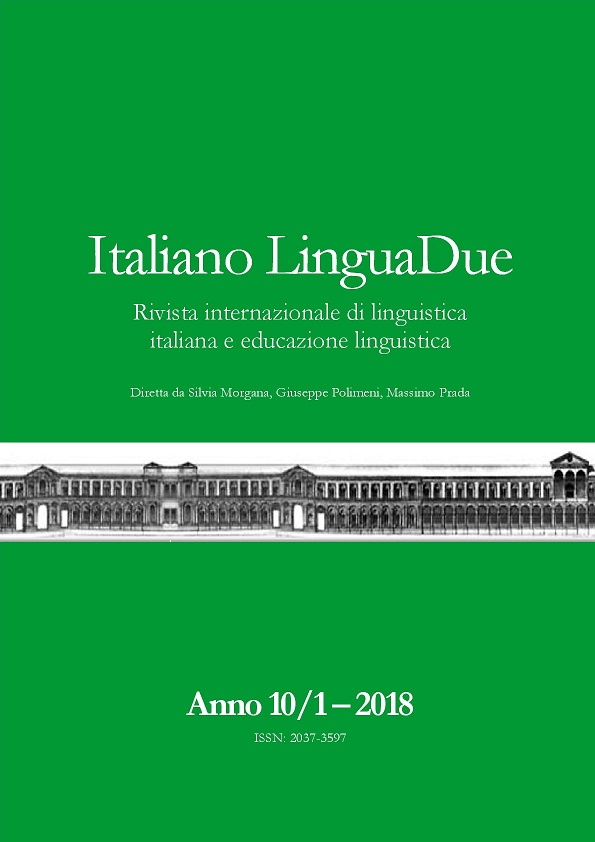LE DIFFICOLTÀ DI INTEGRAZIONE NEGLI APPRENDENTI ADULTI IMMIGRATI CON BISOGNI LINGUISTICI SPECIFICI (BILS)
DOI:
https://doi.org/10.13130/2037-3597/10409Abstract
Cosa sono i BiLS (Bisogni Linguistici Specifici) e quali effetti producono sui soggetti immigrati apprendenti L2 in Italia? Il contributo, partendo dalle definizioni acquisite dalla glottodidattica, rileva nell’andragogia la scienza più adatta a trattare il campione indicato. L’articolo fornisce una disamina sulle caratteristiche salienti degli apprendenti con BiLS e fornisce indicazioni pratiche per un corretto approccio metodologico-didattico con gruppi-classe anche di neoimmigrati, soffermandosi sulla categoria più debole degli immigrati analfabeti. Infine si pongono cruciali interrogativi sulla ricaduta dei problemi linguistici nell’inserimento in società, prospettando fenomeni di mancata integrazione in caso di difficoltà irrisolte nella competenza comunicativa e individuando nell’educazione linguistica una possibile risoluzione al problema.
Integration difficulties in immigrant BiLS learners
What are BiLS (Specific Linguistic Needs) and what effects do they have on L2 learners in Italy? This paper, starting from language teaching definitions, defines andragogy to be the most suitable science for the sample object of this study. The article provides a discussion on the salient characteristics of BiLS learners and provides practical indications for the correct methodological-didactic approach with class groups, including new immigrants, focusing on the weakest category of illiterate immigrants. Finally, key questions are posed regarding the relapse of language problems related to insertion into society, presenting phenomena of non-integration in case of unresolved difficulties in communicative competence and identifying a possible resolution to the problem thanks to language education.



